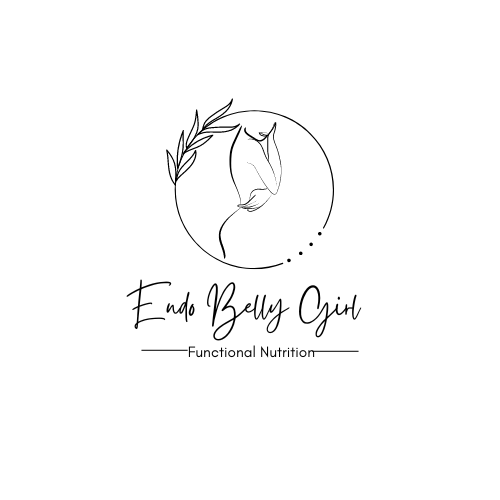In today’s episode, we continue our mineral series by diving into all things zinc! Zinc is a vital mineral for managing endometriosis, playing a crucial role in many bodily functions. Zinc supports many vital functions in the body, and it’s often something we’re deficient in. Maintaining healthy zinc levels is crucial for managing endometriosis.
In this episode, you’ll hear:
-The critical role zinc plays in your body and why it’s so important.
-How to recognize the signs of zinc deficiency and what happens if you have too much.
-Why zinc deficiencies happen, and the connection between zinc deficiencies and copper levels in the body.
-Tips on ensuring you get enough zinc through food sources and when to consider supplements.
-How to test whether you have a healthy balance of zinc in your body.
If you’re fascinated by how nutrients can support your health, join me tomorrow, Thursday, August 15th, for a free webinar! I’ll be unpacking everything you need to know about functional nutrition and how to support your journey as an endo warrior. It’s going to be jam-packed with valuable information—I hope to see you there!
Free webinar 8/15! Click here to register!
Subscribe to The Endo Belly Girl Podcast:
Apple | Spotify
Connect w/ Alyssa:
Work w/ Alyssa:
Learn more about Alyssa
Disclaimer: This podcast is for educational purposes only. This may not be the best fit for you and your personal situation. It shall not be construed as medical advice. The information and education provided here is not intended or implied to supplement or replace professional medical treatment, advice, and/or diagnosis. Always check with your own physician or medical professional before trying or implementing any information read here.
Full episode details and transcription
The Power of Zinc: Unlocking Its Potential for Endometriosis Relief
Discover How This Essential Mineral Supports Immune Function, Digestive Health, and More
One crucial aspect of managing endometriosis is ensuring that your body receives the essential nutrients it needs to function optimally. Today we’ll explore the importance of zinc, a powerful mineral that plays a vital role in supporting immune function, digestive health, and more.
The Role of Zinc in the Body
Zinc is a trace mineral that is essential for many bodily functions. Some of the key roles of zinc include:
1. Supporting Immune Function
Zinc is crucial for maintaining a healthy immune system. It helps the body fight off infections and illnesses by supporting the production and function of immune cells. For those with endometriosis, which is rooted in immune dysfunction, ensuring adequate zinc intake is especially important.
2. Aiding Digestive Health
Zinc is necessary for the production of digestive juices, particularly hydrochloric acid (HCl) in the stomach. HCl is essential for breaking down food and absorbing nutrients properly. Many individuals with endometriosis experience digestive issues such as bloating, constipation, and upset stomach, which may be related to low levels of digestive juices.
3. Maintaining Taste and Smell
Zinc helps to maintain normal taste and smell sensations. A deficiency in zinc can lead to altered or diminished senses of taste and smell.
4. Promoting Wound Healing
Zinc plays a vital role in wound healing, both on the surface of the skin and within the body. It supports cell growth and development, making it essential for the repair and regeneration of tissues.
5. Supporting Blood Sugar Management
Zinc is involved in insulin production, which helps regulate blood sugar levels. Maintaining balanced blood sugar is important for overall health and may be particularly beneficial for those with endometriosis.
Signs of Zinc Deficiency
Knowing the signs of zinc deficiency can help you determine if you may need to increase your intake. Some common symptoms include:
1. Weakened Immune System
If you find yourself frequently getting sick or experiencing infections, it may be a sign that your immune system is compromised due to low zinc levels.
2. Poor Skin Health
Zinc deficiency can manifest in the form of acne or other skin issues. If you’ve been struggling with persistent skin problems, it’s worth considering whether zinc may be a factor.
3. White Spots on Fingernails
Take a look at your fingernails. If you notice white spots or bands, it could be a sign of zinc deficiency. These spots, known as leukonychia, can indicate that your body is not getting enough of this essential mineral.
4. Digestive Discomfort
If you experience frequent bloating, constipation, or upset stomach, it may be related to low levels of digestive juices caused by zinc deficiency.
5. Slow Wound Healing
Zinc is crucial for wound healing. If you notice that cuts or other wounds are taking longer than usual to heal, it could be a sign that your body needs more zinc.
Ensuring Adequate Zinc Intake
Now that we’ve explored the importance of zinc and the signs of deficiency, let’s discuss how to ensure that you’re getting enough of this essential mineral.
1. Food Sources
The best way to obtain zinc is through a balanced diet rich in whole foods. Some of the best sources of dietary zinc include:
– Oysters
– Red meat
– Poultry
– Seafood
– Legumes (beans, lentils, chickpeas)
– Nuts and seeds
– Whole grains
2. Supplementation
If you are unable to obtain enough zinc through diet alone, or if you follow a vegan or vegetarian lifestyle, supplementation may be necessary. When choosing a zinc supplement, look for bioavailable forms such as:
– Zinc biglycinate
– Zinc gluconate
– Zinc carnosine
– Food-based zinc supplements (e.g., derived from oysters)
Start with a low dose, around 10 milligrams per day, and gradually increase if needed. Be cautious not to exceed 30 milligrams per day, as excessive zinc intake can lead to adverse effects such as nausea, dizziness, and headaches.
Zinc is a powerhouse mineral that plays a crucial role in supporting overall health and managing endometriosis symptoms. By ensuring adequate intake through a balanced diet and targeted supplementation when necessary, you can help your body function at its best. Remember to be mindful of the signs of both deficiency and excess, and always consult with a healthcare professional before starting any new supplement regimen. With the power of zinc on your side, you’ll be one step closer to finding relief and living your best life with endometriosis.


